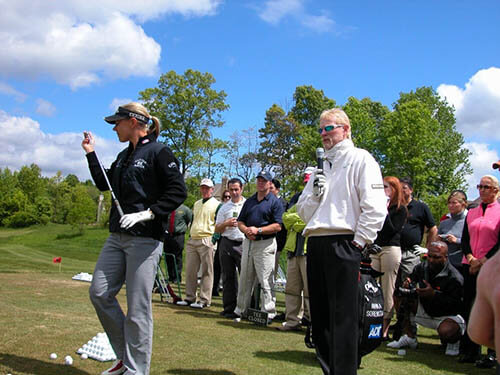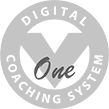Virtual Rehearsals Improve Golf Swing Performance

by Dr. T.J. Tomasi A Legacy Post by Keiser University College of Golf Senior Faculty and Director of Research (1940-2023)
Everyone can create images on their mental screen — it is power as natural as breathing, but very few have control over this power. Only champions have it on call, waiting in the wings as the ultimate deciding factor in competition.
Mental Game of Golf
The mental game of golf is a crucial aspect that often separates good golfers from great ones. Maintaining focus and concentration is essential, as it allows golfers to stay in the moment and not get distracted by past mistakes or future shots. Visualization techniques help golfers imagine successful shots, creating a mental blueprint that enhances performance. Managing emotions is equally important; staying calm under pressure can prevent a downward spiral after a bad shot.
Confidence plays a pivotal role in the mental game, influencing how a golfer approaches each shot and handles the ups and downs of a round. Developing a strong pre-shot routine can help establish consistency and reduce anxiety. Positive self-talk and affirmations can reinforce confidence and maintain a constructive mindset throughout the game. Finally, adaptability, as golfers must adjust their strategies based on changing conditions and unforeseen challenges, staying mentally flexible and resilient.
A remarkable example of employing the power of imagery comes from Charlie Wilson, one of the world’s finest neurosurgeons. Dr. Wilson, who is retired now, was an expert in a very difficult procedure called trans-sphenoidal resection — the removal of a tumor from the pituitary gland. His secret of success? Wilson mentally rehearsed every step of a pending operation before setting foot into the operating room. “It was a virtual rehearsal,” Wilson said, “so when I was doing the operation, it was as if I was doing it for the second time.”
Importance of Golf Mental Game
The mental game of golf is incredibly important because it significantly influences a player’s performance and consistency on the course. Staying focused and maintaining concentration throughout a round helps golfers make better decisions and execute shots more effectively. Managing emotions is crucial, as golf is a game of highs and lows; controlling frustration and staying calm after a bad shot can prevent a single mistake from ruining the entire round. Confidence is another vital aspect; believing in one’s ability can positively affect swing mechanics and overall performance.
As mentioned previously, visualization and positive self-talk are powerful tools in the mental game, helping players envision successful shots and maintain a positive mindset. A strong mental game also includes having a solid pre-shot routine, which creates consistency and reduces anxiety by providing a sense of familiarity and control. Adaptability is essential, as golfers must be able to adjust to changing weather conditions, course layouts, and unexpected challenges. Ultimately, the mental game of golf is about resilience, focus, and maintaining a positive attitude, all of which contribute to a golfer’s success and enjoyment of the sport.
One way to harness the power of imagery that has proven itself effective is the use of two mental transition periods — entering and coming out of sleep. During these periods, the brain is in a state in which brain waves signal synchronization of the right and left hemispheres of the brain. This state is most conducive to producing multi-sensorial images so powerful that they can dramatically improve performance. Can you learn things in your sleep? Yes, says Dr. Noam Sobel of Israel’s Weizmann Institute. Using a tone followed by an odor, Sobel conditioned sleeping subjects to connect the auditory with the olfactory event. The next morning, absent any conscious memory of the tone-and-odor experience, the subjects were exposed to the tone and began sniffing the air in expectation of the odor, proving they had learned while they slept.
How to Improve Your Golf Mental Game
Improving your golf mental game involves several key strategies. Firstly, practicing mindfulness and staying present can help you focus on each shot without getting distracted by past mistakes or future concerns. Visualization techniques are also effective; before each shot, imagine each step in your swing and the desired outcome and visualize the ball’s trajectory to build confidence and clarity. Positive self-talk is crucial; replace negative thoughts with encouraging and constructive affirmations to boost your confidence and resilience.
Developing a consistent pre-shot routine can create a sense of familiarity and reduce anxiety, ensuring you approach each shot with a clear and focused mind. Learning to manage emotions is essential; practice deep breathing or other relaxation techniques to stay calm and composed, especially after a bad shot. Setting realistic goals and focusing on the process rather than the outcome can help you maintain a positive mindset and stay motivated. Regularly reflecting on your rounds, identifying mental challenges, and devising strategies to overcome them can lead to continuous improvement. Finally, consider working with a sports psychologist or mental coach to gain professional insights and tailored strategies to enhance your mental game.
I suggest to my students that they use their imaging skills to improve their golf swing by imaging the swing they learned in their lesson that day during the pre- and post-sleep periods of their sleep that night. You’re learning something during these periods, and it might as well be something really important, like your golf swing!

Perhaps the greatest woman golfer in history, Annika Sorenstam, stares down the landing area like a gunfighter – and this is only a demo for the fans.
Learn more!
Want more tips? If you want to take your game to the next level, contact our team at Keiser University’s College of Golf & Sport Management today. With our dedication and experience, we can elevate your game to new heights together. Give us a call today at 888-355-4465.















great content.